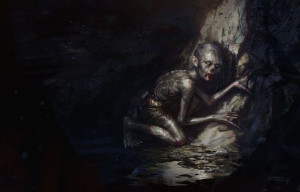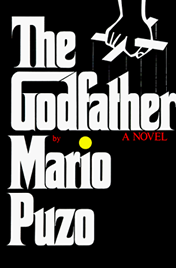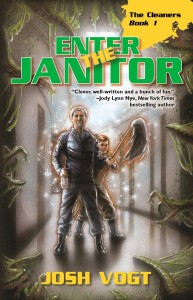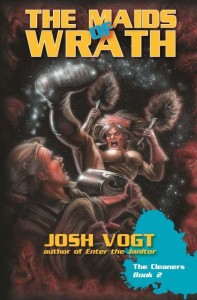A guest post by Matt Becket.
 Lex Luthor goes up against quite a lot more than just virtual demigods in Batman v Superman. He goes up against us. We, in fact, are his greatest challenge.
Lex Luthor goes up against quite a lot more than just virtual demigods in Batman v Superman. He goes up against us. We, in fact, are his greatest challenge.
I imagine that DC’s goal in presenting an archvillain is to create a feeling of disgust, hatred, or sympathy for the character. Without it, they are unsuccessful. Lex needs to hook us. We need to want to be hooked.
I love movies. I even enjoy bad films if only because my butt is planted in the seat of a movie theater. It’s all magic to me. With a PG-13 superhero movie I become a ten year old boy. My youthful eyes don’t go to judge – but if they get side-tracked, they age into the critical eyes of a college freshman (some of the world’s harshest judges). When this happens the popcorn isn’t as savory and the soda loses its bubbles. It’s still magic, but flat magic propelled by other factors my eyes latch onto such as special effects or cinematography.
I personally appreciate the Warner Brothers’ attempt in making a new Lex, but something did not work. People have blamed casting. Casting is usually the first thing to be blamed. The second thing to be blamed is direction. These two are contributors, but I think the writing and pacing in this movie hurt the new incarnations of these characters the most.
Good characters usually have clear motives with stakes involved. Reintroduced characters shouldn’t rely too much on a savvy audience already familiar with the brand. Lex Luthor wasn’t given a good platform this round. I wanted to know how this particular Lex got to this point. I do admit you can fit the pieces together, kinda, but his motive didn’t hit home and wobbled. Was there a movie between this one and the last that I missed?
Let’s break Lex down. What do we know about Lex Luthor? He’s rich. He’s smarter than Superman. His inventiveness is up there with Batman. He’s power-mad, but he’s able to hold himself together. These are fantastic qualities in a Super-villain (it’s what gives him that “super” bit.) What can mess this up? I think the answer is overincarnation. Yes, I made up this word just now. I think I made it up. No idea, I’ll Google it later.
Where were we? Right! Overincarnation. We have the comics, the old black and white TV serial, more comics, video games, Smallville, Lois and Clark, bald Kevin Spacey, bald Gene Hackman, the Super Friends cartoon. That’s a stable of Lex Luthor! Having been exposed to this, we have Lex Luthor expectations and have all formed some sort of Lex Luthor in our head. Can Hollywood find that least common denominator Lex Luthor that our moms, brothers, and Grandpa will appreciate? Sadly, I feel that this time they did not.
The world knows who Lex Luthor is. He’s been fighting Superman since 1940. He’s very recognizable.
It would have been really cool if he had made an appearance in Batman v Superman. We kept waiting, but he never showed.
About the Author:
 Matthew started lying as soon as he could talk. Thrilled with the reaction he received, he started making the lies bigger. Some of the lies he had kicked around for years became commodiously appropriate for the written word. Matthew has fun lying in the Middle Grade genre, but lately has been taking on the Adult Dark Humor Crime Thriller genre. He is currently working on his novel – The Sommelier.
Matthew started lying as soon as he could talk. Thrilled with the reaction he received, he started making the lies bigger. Some of the lies he had kicked around for years became commodiously appropriate for the written word. Matthew has fun lying in the Middle Grade genre, but lately has been taking on the Adult Dark Humor Crime Thriller genre. He is currently working on his novel – The Sommelier.
When not lying, he is usually traveling, or hanging out with his wife and three cats in Celebration, Florida while looking up words like “commodious” on thesaurus.com .
Where do I find this guy?
Facebook: https://www.facebook.com/matthewdavidbecketauthor/?ref=hl
Twitter: https://twitter.com/MatthewBecket
Wattpad: https://www.wattpad.com/user/MatthewBecket







